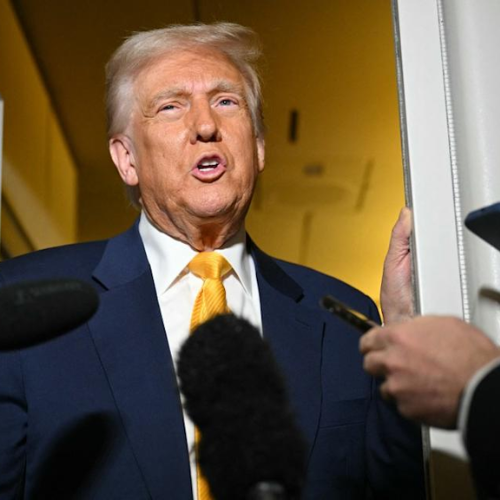Over the weekend, a wave of confusion spread across news and government channels after the U.S. Customs and Border Protection released new guidance suggesting that some electronics — like smartphones and computers — would not be charged new tariffs. These tariffs were part of the United States’ broader trade measures aimed at countries accused of taking unfair advantage in international trade.
But by Sunday, everything seemed to shift. The President made it clear that no country is “off the hook” when it comes to trade imbalances and tariff policies. Despite earlier information that certain tech products might be excluded, he insisted that no such exceptions were ever announced.
This back-and-forth has caused widespread confusion about what products are actually affected. The original announcement had led many to believe that electronic goods were going to be spared from what are now being called “Fentanyl Tariffs,” which apply a 20% rate to certain goods imported from countries like China, Canada, and Mexico.
Stock Markets Explode After Trump’s Truth Social Post and Tariff Freeze — Timing Raises Eyebrows
President Denies Any Special Treatment
On Sunday, the President used his social media platform to deliver a strong message. He said that nobody is getting a pass when it comes to fixing what he calls unfair trade practices. He singled out China, saying it treats the United States the worst. He also said that many countries have used non-monetary trade tricks to hurt American businesses.
The President wrote that the idea of any country getting a break was simply not true. He emphasized that no tariff exceptions were announced on Friday, and that earlier reports were incorrect or misinterpreted. According to his message, even the electronic products listed in the Customs and Border Protection guidance are still covered by the current 20% tariffs related to the crisis of illegal drug imports.
Instead of being removed from tariffs, the products are just being placed under a different category — a different “tariff bucket,” as he described it. This means they are still subject to taxes when entering the country, just under a different part of the policy.
This statement directly contradicts earlier beliefs that there had been a shift in the tariff plan. The President’s words made it clear that the trade rules are still very much in place and being strictly applied, especially to countries considered to be unfair trading partners.
Shoppers Face Brutal Blow as U.S. Closes Powerful Tariff Loophole Exploited by Shein and Temu
Focus Shifts to Electronics and National Security
The President also mentioned that his administration is now looking closely at the electronics industry, including semiconductors — the small chips that power phones, computers, and cars. He said the entire electronics supply chain will be part of a new investigation under national security measures.
He believes the U.S. has become too dependent on other countries for important technology and wants to make more of these products at home. In his view, relying on other nations, especially those he sees as hostile or disrespectful, puts the country at risk.
He criticized the media for not reporting the truth, saying they ignore the fact that no exceptions were made. He also stated that the goal is to stop other countries from taking advantage of America in trade deals. According to him, those days of being “abused” are over.
The President ended his message by tying the tariff issue to a broader push for economic changes, including tax and regulation cuts. He believes these actions will lead to more jobs and stronger businesses in the U.S., especially in manufacturing and technology sectors.
Though the statements were forceful, the contradiction between the Customs guidance and the President’s words has left many people — including companies and consumers — wondering what the actual rules are. For now, all signs point to tariffs staying in place, especially for electronics and goods from countries seen as trading unfairly.


